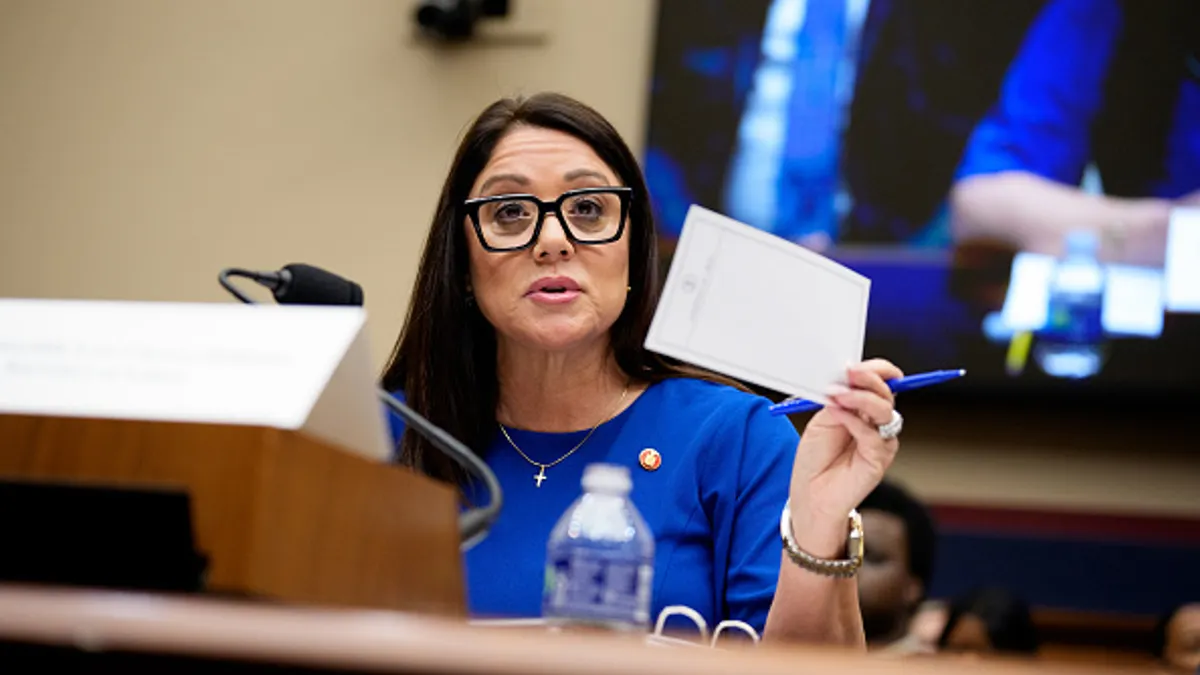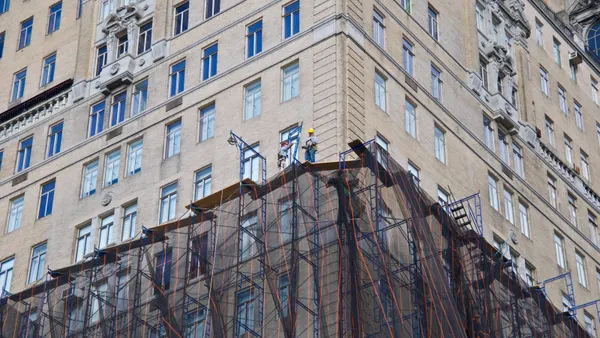Dive Brief:
- The Occupational Safety and Health Administration has cited Georgia masonry contractor MMC Construction LLC with two willful safety violations for not protecting workers from fall hazards of up to 13 feet on an Alabama project site and fined the company $130,500.
- OSHA inspectors said they observed MMC employees working at a second-story level on scaffolding without guardrails and said the company did not provide safe access to the scaffolding via, for example, a ladder.
- OSHA said it inspected MMC project sites six times in the past five years and cited the company, which has 10 employees, for scaffold violations each time.
Dive Insight
OSHA said it initiated this latest MMC site inspection as part of its Regional Emphasis Program on Falls in Construction.
Joseph Roesler, OSHA's area director in Mobile, AL, said MMC's continued actions are putting its employees at risk of injury and death. "Falls are a leading cause of death in the construction industry. OSHA remains committed to holding employers accountable for ensuring all workers are protected," he said in a press release.
Construction worksite fall protection hazards continue to be one of OSHA's main focuses, as these types of safety violations always top the agency's list of the most common violations and, the agency said, were the cause of 291 preventable worker deaths in 2013. Many jurisdictions are also increasingly pursuing criminal charges against violators when an employee death or serious injury occurs.
Brooklyn, NY, contractor Salvatore Schirripa and his companies were recently charged with manslaughter and homicide in connection with an April 2015 worker death. Prosecutors alleged that one of Schirripa's employees fell six stories because Schirripa did not provide fall protection for the worker, who was walking backwards as he finished concrete in an unprotected area of the building when he fell off the edge.
In August of this year, violators like MMC could see their fines increase by 80% or more when OSHA raises its fine levels to match the Consumer Price Index — the first increase since 1990.













